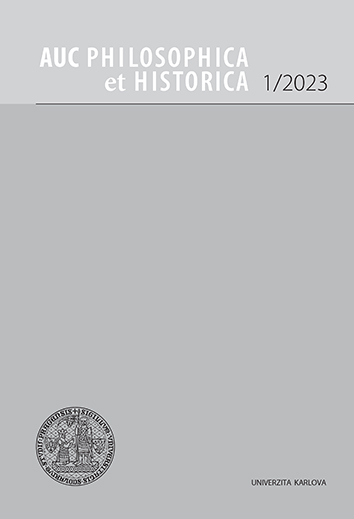AUC Philosophica et Historica je víceoborový akademický časopis zaměřený na humanitní a společenskovědné obory (filozofie, psychologie, pedagogika, sociologie, obecné, české a hospodářské dějiny, pomocné vědy historické a archivnictví, etnologie).
Časopis je indexován v databázích CEEOL, DOAJ a EBSCO.
AUC PHILOSOPHICA ET HISTORICA, Vol 2001 No 1 (2004), 133–147
Práce v hodnotovém kontextu české společnosti
[Work in the Value Context of Czech Society]
Jiří Buriánek
DOI: https://doi.org/10.14712/24647055.2018.41
zveřejněno: 12. 01. 2018
Abstract
This article offers the first results of the „Actor 2001“ research project carried out as part of a project entitled „The Individual and Society in Processes of Globalisation and Transformation“. Value orientation in work is an area that in contrast to others has undergone marked shifts as a result of the changes in Czech society after 1989. Freedom, legality and social justice head the ladder of socio-political values. Opinions on these values are strongly socially differentiated: individual freedom is more highly rated by people with higher social status, while social justice is more highly rated by those with lower status. This pattern also corresponds to classification on the scale of rightwing – leftwing. In the ladder of individual values work has ousted family from top place. The ranking of values is interesting in the next two places, where we find sufficient time for interests and hobbies and good physical condition. The values of work and free time seem to be in tension from the point of view of their accessibility. In this field factors like gender and age play a larger role, but the influence of political orientation is still perceptible. This pattern is stronger if we apply the point of view of accessibility of values. A third perspective follows values as strategic choices, as preferred life strategies. The most conspicuous deviations from the middle of the scale indicate the prevailing orientation of Czech society: - not to be involved in politics - to live in one place - to enjoy a pleasant life - to treat children democratically - to have fun in free time - to devote oneself mainly to family A low level of geographical mobility accompanied by loyalty to the employer firm are typical. Roughly a third of respondents adopt an active model including individual responsibility and enterprise. The influence of political orientation as a new and more or less dominant element of transformations of value orientations is manifest in this area as well. In the field of work values, in addition to the importance of work context, there is now increased weight given to the element of job security, which we see as a typical effect of an already functioning labour market. The final passage involves critical consideration of the possibilities of interpreting this data in the context of Inglehart theory.
